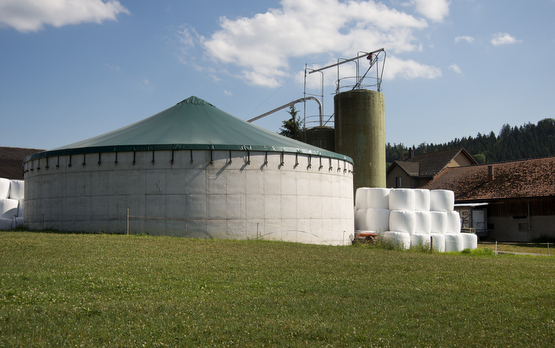Mailbox for annual PEP soil analyses data:
bodenanalysen@agroscope.admin.ch

Principles of Agricultural Crop Fertilisation in Switzerland (PRIF)
The purpose of the Principles of Agricultural Crop Fertilisation in Switzerland (PRIF) is to provide practical solutions for farm managers, fertilisation advisers, associations and government authorities. We contribute to the PRIF with expert knowledge on soil testing, determination of the nutritional status of crops, and fertilisation recommendations. Furnishing standard values for the nutrient content of organic and recycled fertilisers and providing application recommendations and information on environmental impacts are also part of the services we offer. We regularly update the PRIF by including the latest research findings on and practical experience of management- and site-specific nutrient dynamics and site-specific fertilisation to ensure stable crop production while keeping environmental impacts low.
Nutrient accounting at field, farm and national level
In several projects we provide the scientific principles for calculating nutrient balances at different levels. The focus here is on the integration of recent scientific findings, digital methods and applicability in agricultural practice, e.g. in plot-level fertilisation planning; on the improved representation of the organic manure chain (Agrammon) and nutrient replenishment from the soil (N model by Jarosch et al. 2018); or on the evaluation of the on-farm manure utilisation factor in the “Suisse-Bilanz” and in the national agricultural accounting of Switzerland. The projects enable the identification and evaluation of efficiency measures and thus contribute significantly to the reduction of nutrient losses to the environment.
Soil analyses as part of the Proof of Ecological Performance (PEP)
As part of the Proof of Ecological Performance (PEP), soil samples are taken at least once every 10 years on each agricultural plot by the farm managers and are analysed by approved environmental laboratories for available phosphorus and potassium content, texture, pH value and soil organic carbon. Since 2010, Agroscope has evaluated the data on behalf of the Federal Office for Agriculture FOAG. The results on soil phosphorus are included once every four years in the Agricultural Report, and are also used to calculate the agri-environmental indicator ‘phosphorus content in soils’.
Agri-Environmental Indicators (AEIs)
To facilitate the assessment of the services provided by agriculture from the perspective of sustainability and the prompt identification of areas of concern, 16 agri-environmental indicators (AEIs) relating to nitrogen, phosphorus, soil, climate, energy, water and biodiversity are calculated annually. We provide both the data and evaluation for the ‘soil phosphorus content’ and ‘soil cover’ AEIs. Both indicators are calculated independently of the Swiss Agri-Environmental Data Network and are derived from data collected throughout Switzerland.
Publications
Contacts
OSPAR Balance:
Further Information
Proof of Ecological Performance
Agri-Environmental Indicators





